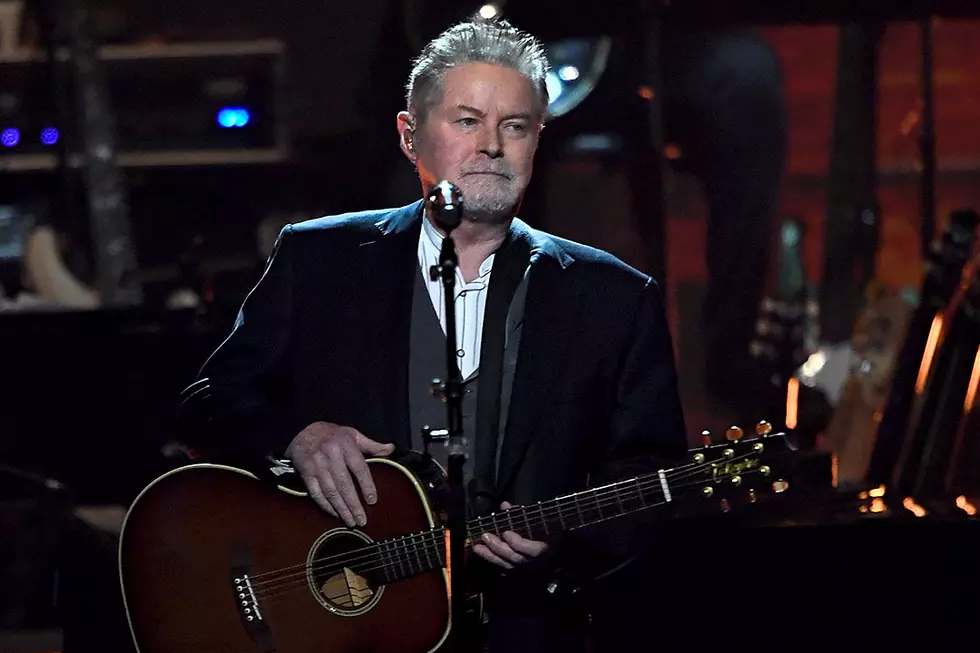
Why Joe Walsh Got So Serious With ‘So What’
Joe Walsh had already decided to make a more serious album when fate intervened. "I know this album's going to be an important one for me, but it's not easy to just crank them out anymore," he told Rolling Stone, a couple of months before So What arrived on Dec. 14, 1974.
"I don't want the next album to sound like a bunch of outtakes from [1973's The] Smoker [You Drink, the Player You Get]," he added. "I want it to be the difference between [the Beatles'] Revolver and Sgt. Pepper. I've held back until that development was there, even though the record company's been screaming for it. I want it to be a big, big step – in thoughts, vocals, playing and maturity."
Then Walsh was struck by an unspeakable tragedy, and his marriage fell apart. A darkness shot through the sessions, which had lasted from December 1973 into April 1974 – the same month that Walsh's wife, Stefany Rhodes, was smashed into while driving their daughter Emma to a playdate in their adopted hometown of Boulder, Colo.
Someone ran a stop sign at the corner of Ninth and Spruce, and the passenger-side impact spun the Walshes' green Porsche into a fence across the street. Emma, then just weeks away from turning 3, sustained massive head trauma. She was taken off life support later that night, and her corneas and kidneys were donated to others.
"The accident kind of did us in," Rhodes told the Daily Camera in 2010. "We divorced shortly afterward."
Walsh returned to the studio, trying to shape his feelings while barely fighting off deep despair. Even if he'd never admitted it, So What telegraphs his pain. There are titles like "Falling Down" and "Help Me Through the Night," his moody synth-driven instrumental interpretation of "The Pavane of the Sleeping Beauty" from Ravel's Mother Goose Suite and, of course, the devastating album-closing tribute simply titled "Song for Emma."
But Walsh was always brutally honest about the impact of his daughter's death, from his lingering anguish to his slide into alcoholism. "To help with closure, I wrote this song for her," Walsh told Rolling Stone in 2016. "And over the process of the next year, my wife and I, we just weren't strong enough to get through the grief and so we separated and eventually got divorced.
"But I met a girl in Los Angeles, and my song 'Help Me Through the Night' was to her about being there for me – because I was a wreck," Walsh added. "But she was there so that I could grieve Emma."
Listen to Joe Walsh Perform 'Help Me Through the Night'
A certain hardness defines the rest of So What, from the opening "Welcome to the Club" to his remake of "Turn to Stone" from 1972's Barnstorm. Walsh tries to lighten things up with the field-holler "All Night Laundry Mat Blues," but it only lasts a moment. "County Fair" tries to round itself into a romp, but a sad reverie keeps elbowing in.
Everything coalesces around the cover, which finds Walsh peering out in an empty-eyed stare. The album title itself was a shocking moment of nihilism from someone often thought of as rock's clown prince.
"I called it that because I had this 'so what' attitude," Walsh added. "I was angry. I was really mad at God – and I felt that was a great reason to drink: 'Poor me. God took my daughter away.' And so I got an attitude, like, 'This is the worst thing that's ever happened. I don't care about anything' – just to justify that it was okay to get screwed up."
A plaque was dedicated in memory of Emma on May 25, 1976 at her favorite playground in Boulder. It reads: "This fountain is given in loving memory of Emma Walsh, April 29, 1971-April 1, 1974." Her mother told the Daily Camera that "the fountain was all Joe's doing, really."
Walsh says he still thinks of Emma often, and he's tried to leverage his sense of loss into something constructive. "Having had that experience, sometimes I am in a position to be able to comfort people," Walsh told Interview in 2012. "I'm in a position to put an arm around them and tell them they are not alone.
"I've talked to several parents whose sons were killed in Iraq or Afghanistan, and they know about my daughter," he added. "Sometimes, they'll contact me to let me know their kids were killed in the war and that they were fans, or that my music really helped them deal with their grief. That's a good thing that came out of it."
It wasn't the only thing. So What became a gold-selling No. 11 hit, while also hinting at his next career move: Several members of the Eagles joined in the sessions, after recently hiring Walsh's producer, Bill Szymczyk. They'd also shared stages, and had the same manager in Irving Azoff.
Listen to Joe Walsh Perform 'Song For Emma'
Don Henley ended up co-writing "Falling Down," and singing on "Time Out." Henley was also joined by bandmates Glenn Frey and Randy Meisner on backing vocals for "Turn to Stone" and "Help Me Through the Night."
Something clicked. Within a year and a half, Walsh had replaced founding member Bernie Leadon in advance of the Eagles' biggest album ever. "So, when Bernie decided that he just wasn't interested very much in continuing," Walsh told Guitar World in 2012, "Don and Glenn thought I would plug in really well with where the Eagles were eventually going to go.
Walsh admitted that "at the time I was going, 'Aw fuck, it's time to do another solo album. Oh shit. Anybody got any ideas?' You know? So, it all just kind of came together, I joined the Eagles – and the result, of course, was Hotel California.”
It took some time, but Walsh was finally able to put sudden turns of events like that in perspective, quoting a storyteller best known for PBS's The Power of Myth.
Joseph Campbell said "something profound," Walsh told students at his old high school in 2015. "As you go through life, it appears to be a series of unrelated events colliding, smashing into each other, creating chaos and destroying your plan for what's going to happen. It's really hard to know what is going on on a daily basis. In retrospect when you look back on your life, it looks like a finely crafted novel."
Years after her passing, Stevie Nicks' impromptu visit to the fountain honoring Emma Walsh inspired "Has Anyone Ever Written Anything for You," from 1985's Rock a Little.
Eagles Solo Albums Ranked
Six Little-Known Eagles 'Hotel California' Facts
More From Ultimate Classic Rock









